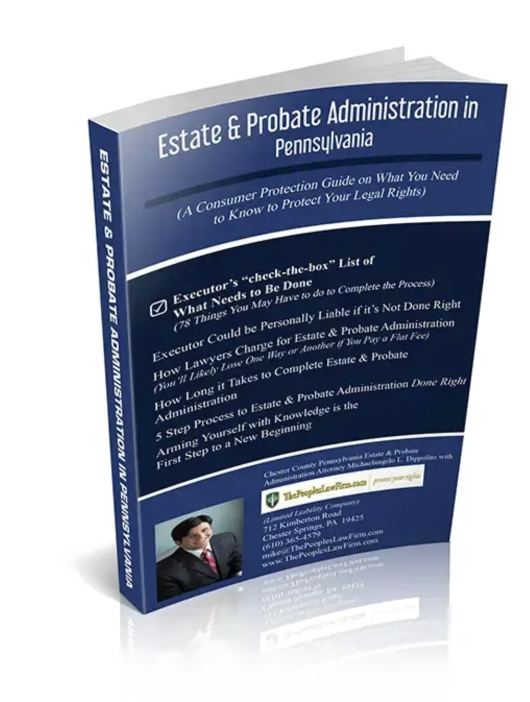Designating a loved one as a personal representative is an act of love and trust, done with the understanding that this trusted individual will see that their wishes are respected even after they’ve passed from this earth.
If you’ve been named as the personal representative or executor in a loved one’s will, you are the person entrusted with administering the estate in the way the loved one wished.
While this is a distinct honor, it’s also a legal obligation that may feel overwhelming to someone without a background in Pennsylvania estate law. Reach out to ThePeoplesLawFirm.com to learn how an Pennsylvania probate lawyer can help you.
Why Choosing ThePeoplesLawFirm.com for Your Phoenixville Probate Case May Be Right for You
You don’t have to face a challenging legal endeavor alone, especially one with the potential for family conflicts and legal missteps with significant consequences.
By choosing ThePeoplesLawFirm.com, you’ll have the following:
- A lead attorney with more than 26 years of experience in probate court and estate law
- Legal guidance throughout the process from published author and lead attorney, Michaelangelo L. Dippolito, whose commitment to professional excellence gives him a renowned reputation with the legal community and former clients
- A tireless ally working at your side to ensure the most efficient probate possible with a strategy tailored to your loved one’s unique estate and beneficiaries
You can learn more about how an estate administration attorney can help you through a free phone consultation with ThePeoplesLawFirm.com.
What Is the Process Ahead for My Phoenixville Probate Case?
If you are the estate administrator for a deceased loved one (decedent), you are a fiduciary for the estate, meaning you are legally required to act in the best interests of the estate and its beneficiaries.
This process begins soon after the funeral, always allowing for time to grieve with your family. The Pennsylvania probate process typically proceeds as follows:
- After locating the will and acquiring a certified death certificate, you must file the will with the county’s Will Register and petition the probate court to open probate on the case
- Once you’ve received the court approval letter and paid the probate fee, you must notify the beneficiaries, any creditors with debts against the estate, and tax authorities of the open probate period
- Then, you must notify the public of probate, often through newspapers or online local news forums, legally meeting the responsibility to allow creditors to come forward with claims within a year of the death
- A complete inventory of the estate’s assets and debts is required, with periodic updates to the estate court on the progress
- All debts and tax obligations are paid through the method outlined in the will, sometimes accomplished through the sale of specified property
Once debts and taxes have been paid, the estate administrator must oversee the distribution of assets and transfer of deeds and titles to the named beneficiaries.
What If a Deceased Loved One Left No Will or Estate Plan?
The state’s intestacy laws for inheritance determine who receives the remaining assets in an estate after a family member dies without leaving a will.
In these cases, a family member often steps forward as the personal representative and the court authorizes them as the estate administrator. Even without an estate plan, an estate of over $50,000 in value or one that includes real estate property requires probate.
Contact an Estate Administration and Probate Lawyer in Phoenixville at ThePeoplesLawFirm.com
As a fiduciary for an estate, a lot falls on your shoulders during the probate and estate administration period. Even an unintentional oversight can cause delays, conflicts, a contested will, or even personal liability for any losses.
Instead of navigating this complex legal process alone, contact ThePeoplesLawFirm.com to learn how an accomplished estate attorney can help you.





